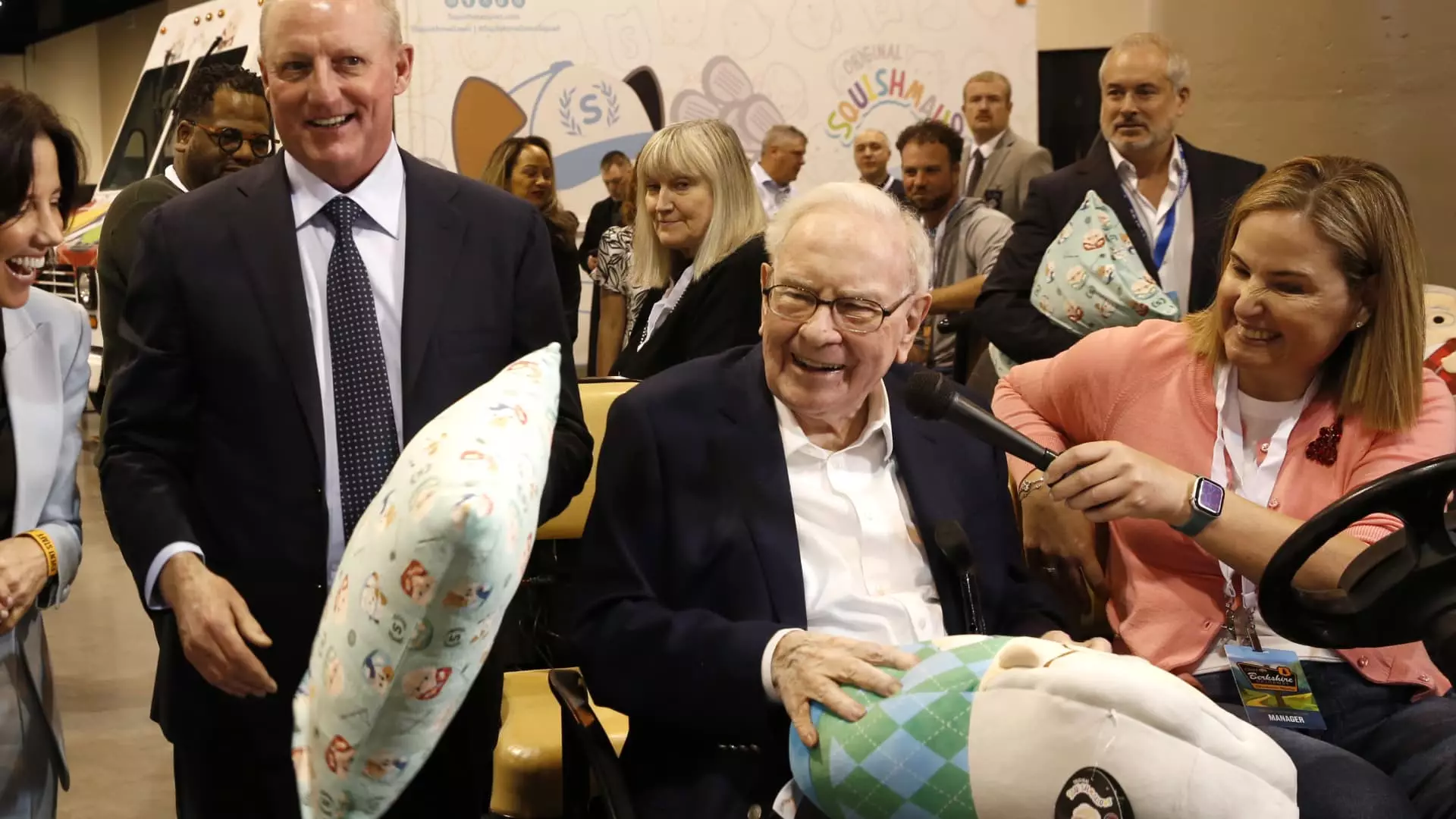In a remarkable moment that echoed through the splendid halls of Omaha’s annual Berkshire Hathaway meeting, 94-year-old Warren Buffett disclosed plans to step aside as the CEO, designating Greg Abel as his successor. This announcement, while planned, unfolded as a shock to many, even amidst the crowd of devoted shareholders that reveres Buffett as an iconic titan of investment. As he acknowledged the gravity of the moment, it became clear that even those well-versed in Buffett’s operations were not fully prepared for this turning point. “Tomorrow, we’re having a board meeting of Berkshire,” Buffett remarked, setting the stage for a transition that he believes is not just necessary but timely.
Buffett’s enduring legacy is irrefutable; his success transformed a humble textile mill into a colossal conglomerate with an expansive market cap of nearly $1.2 trillion. Yet, amidst his achievements, this transition serves as a poignant reminder of the impermanence of even the most iconic figures. For ace investors and shareholders, this moment wasn’t just about changing of the guard—it was a signal that the era of Buffett’s unrivaled stewardship is finally drawing to a close.
Greg Abel: The Right Man for the Job
At 62, Greg Abel steps into this new role with a notable legacy of his own within Berkshire Hathaway. Having joined the company in 2000, he has swiftly risen through the ranks to become the vice chairman responsible for non-insurance operations, proving himself with a hands-on management style that Buffett himself acknowledged is “working way better.” Abel’s background, particularly his leadership at MidAmerican Energy, showcases a strategic acumen that aligns seamlessly with Buffett’s renowned value investment philosophy.
But what truly sets Abel apart? Unlike Buffett’s more laid-back administration style, Abel’s energetic, involved approach indicates a refreshing shift towards operational engagement. While Buffett was able to rely on the strengths of the multifaceted workforce he had developed, the current market landscape requires a leader willing to delve deeply into the daily mechanics of the business. In this era of rapid change and unpredictability, Abel’s readiness to adapt could be crucial for navigating the complexities of modern capitalism.
A New Era or the Same Old Playbook?
One can’t help but ponder whether Abel’s ascent signifies the dawn of a new era for Berkshire Hathaway or merely a continuation of Buffett’s venerable legacy. In his remarks, Abel insisted that he would adhere to the investment style that Buffett cultivated over six decades. “It will not change. This is the approach we’ll take as we go forward,” he claimed. While this sentiment reassures the shareholders who fear disruptive change, it also raises questions. Is there truly space for innovation, or will Berkshire continue to rely heavily on the strategies that made its former CEO a household name?
Buffett’s endorsement of Abel’s investment acumen is vital, but as the financial landscape continues to shift dramatically due to external pressures such as technological advancements and socio-economic upheavals, merely sticking to a playbook may not suffice. It would be prudent for Abel to infuse his leadership with fresh ideas, perhaps even adopting progressive corporate governance approaches that reflect contemporary values. In a world where corporate culture increasingly intertwines with social responsibility, Abel’s ability to evolve while honoring Buffett’s principles will be critically scrutinized.
Stockholder Sentiments: An Emotional Farewell
The emotional tenor of Buffett’s farewell was palpable, as thousands of shareholders rose to their feet for a standing ovation. This collective moment underscored the profound impact Buffett has had not just on individual fortunes, but on corporate culture as a whole. “I could get away with it because we’ve got a basically good business,” he reflected, highlighting the systemic strength that has allowed Berkshire to flourish.
As shareholders express their gratitude and admiration, they also wrestle with the reality that change is on the horizon. For many, it’s a bittersweet acknowledgment of the passage of time; they are witnesses to both the end of a remarkable chapter and the beginning of an intriguing new phase. The optimism surrounding Abel is tempered by trepidation, as the question remains—can anyone truly fill the shoes of the “Oracle of Omaha”?
Ultimately, this transition raises the stakes for Abel, whose leadership will either validate Buffett’s legendary status or challenge the firm’s legacy in unexpected ways. The Berkshire Hathaway of the future may find itself at a crossroads, equipped with Buffett’s wisdom but tasked with the challenge of navigating an increasingly complex world of investment. The next few years will certainly be telling: Are we on the precipice of a new age, or will Buffett’s approach outlast him?

